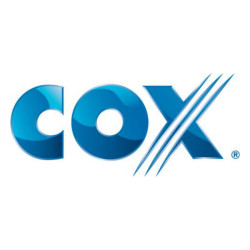Top Class Actions’s website and social media posts use affiliate links. If you make a purchase using such links, we may receive a commission, but it will not result in any additional charges to you. Please review our Affiliate Link Disclosure for more information.

San Diego resident and plaintiff Tiffany Cahill alleges in the unfair debt collection lawsuit that Cox Communications used illegal tactics to collect on a debt and sent collection letters, violating both the FDCPA and The Rosenthal Fair Debt Collection Practices Act (RFDCPA).
Among these purported illegal debt collection tactics, Cahill states that she and other consumers’ personal information, including account numbers, names, and addresses were visible through a glassine window, thus an invasion of privacy since any person handling the mail can see a core piece of information pertaining to an alleged debtor.
According to the Cox Communications lawsuit, Cahill received a debt collection letter on Apr. 22, 2016 seeking to collect a balance allegedly incurred for past due residential cable services. Through the window of the envelope, Cahill says her name and address were visible by any third party.
Also visible through window was a barcode, that when scanned by a device such as smart phone, revealed Cahill’s personal information including her entire account number – which is a violation of the FDCPA.
In 1977, in response to a growing problem with abusive debt collection practices, the federal government enacted the Fair Debt Collection Practices Act (FDCPA). The objective of the FDCPA was to eliminate abusive debt collection practices by penalizing businesses that violated the regulations.
In addition to imposing requirements on debt collectors, the FDCPA prohibited a variety of abusive collection practices, including using any language or symbol, other than the debt collector’s address on any envelope when communicating with a consumer by use of the mail.
Specifically, Cahill challenges Cox Communications’ practice of sending debt collection letters with a visible barcode that can be seen by any person that comes into contact with her mail.
“Courts have found that a Barcode is not a benign or meaningless symbol but indicated a core concern of both the FDCPA; and, RDFCPA,” the 11-page complaint states.
The unfair debt collection lawsuit further claims that information contained in the barcode as well as the visibility of other personal information through a letter’s glassine window could leave Cahill and other proposed Class Members vulnerable to identity theft and privacy intrusions by an unauthorized third party.
Cahill is requesting certification for a nationwide Class as well as a California subclass.
The proposed Classes would consist of individuals who were sent one or more collection letters by Cox Communications “which bore a Barcode visible through the glassine window to recover a consumer debt which was not returned undeliverable by the United States Postal Service at any time one year prior to the date of the filing of this Action.”
She is seeking relief for actual damages to be determined at trial against the defendant along with an award of statutory damages of $1,000 for herself and each plaintiff and putative Class Member individually.
Cahill is represented by Abbas Kazerounian and Matthew M. Loker of Kazerouni Law Group APC; Daniel G. Shay of the Law Office of Daniel G. Shay; and Joshua B. Swigart of Hyde & Swigart.
The Cox Communications Unfair Debt Collection Class Action Lawsuit is Tiffany Cahill v. Cox Communications Inc., Case No. 3:16-cv-02633, in the U.S. District Court for the Southern District of California.
ATTORNEY ADVERTISING
Top Class Actions is a Proud Member of the American Bar Association
LEGAL INFORMATION IS NOT LEGAL ADVICE
Top Class Actions Legal Statement
©2008 – 2024 Top Class Actions® LLC
Various Trademarks held by their respective owners
This website is not intended for viewing or usage by European Union citizens.















2 thoughts onCox Communications Class Action Alleges Illegal Debt Collection Letters
Hello. My name is Napolian Dudley. It states that on my credit report I owe 11 COX COMMUNICATIONS $321. This is affecting my score tremendously. I think the information is inaccurate.It states
AFNI
Last reported Aug 11, 2019
$321
Open balance
11 COX COMMUNICATIONS
Original creditor
SNAPSHOT
Opened
Feb 01, 2018 (1 yrs, 7 mos)
Account status
Open
Type
—
Responsibility
Individual
Remarks
Placed for collection
Original creditor name
11 COX COMMUNICATIONS
Please explain how this is possible if I was incarcerated during that time and have proof to verify it. Hope to hear from you soon in regards of this issue. Thank you.
Fraudsters often use incarcerated individuals identification. It could also be a family member or ex-girlfriend as well. Contact Cox to find out what address the debt was incurred at. This may tell you something about who it was. You should dispute the charge with the top 3 credit bureaus with proof of incarceration. They will clear it off your record. Hope this helps